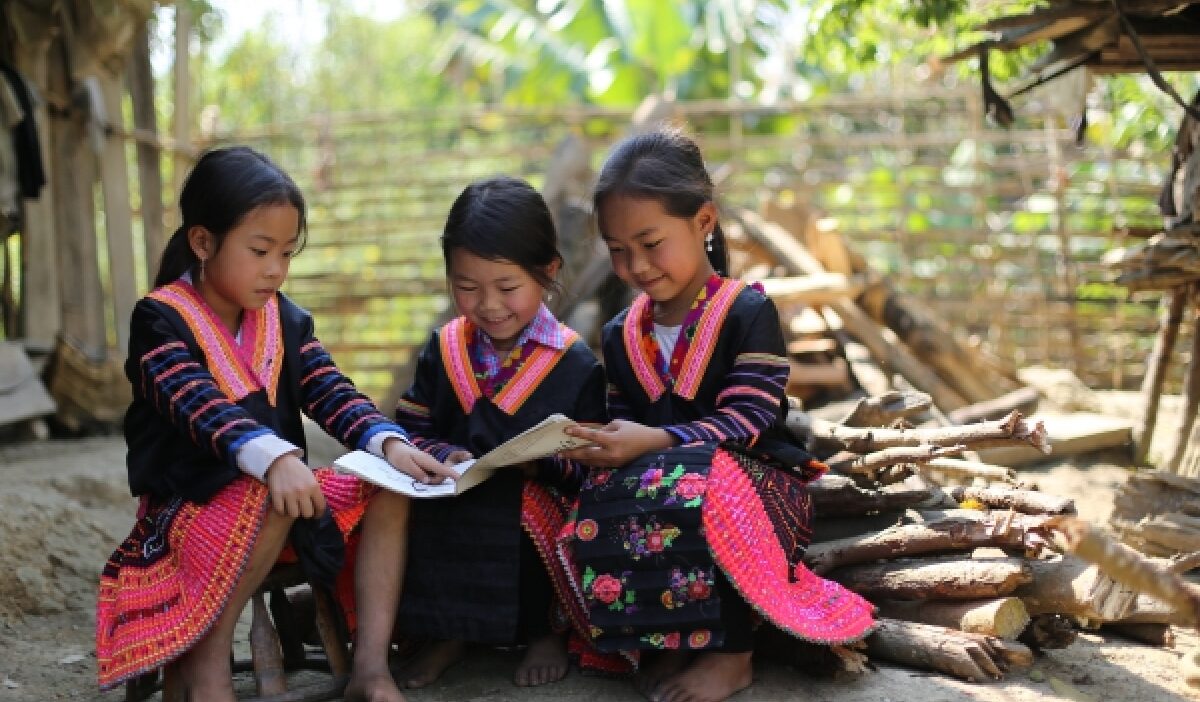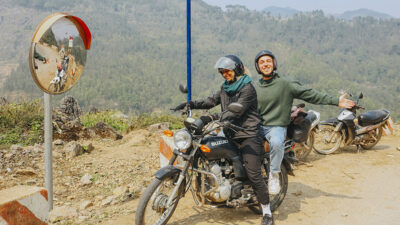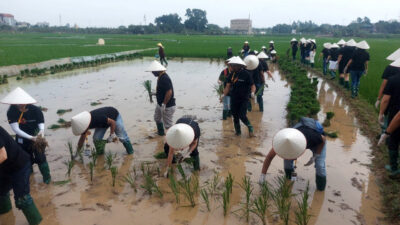When people imagine Vietnam, bustling cities like Hanoi and Ho Chi Minh City or coastal destinations like Da Nang and Hạ Long Bay often come to mind. But for those seeking deeper cultural immersion and meaningful encounters, there’s a whole other side of Vietnam to discover—its mountainous heartlands, home to vibrant ethnic minority communities.
A Vietnam mountain tribe experience is unlike any typical tourist itinerary. It’s a journey into ancient cultures, breathtaking nature, and timeless traditions that have shaped life in the highlands for centuries. Whether you want to trek through terraced rice fields, sleep in a stilt house, attend a colorful tribal festival, or bathe in healing Dao herbal water, Vietnam’s mountain tribes welcome you to experience their way of life.
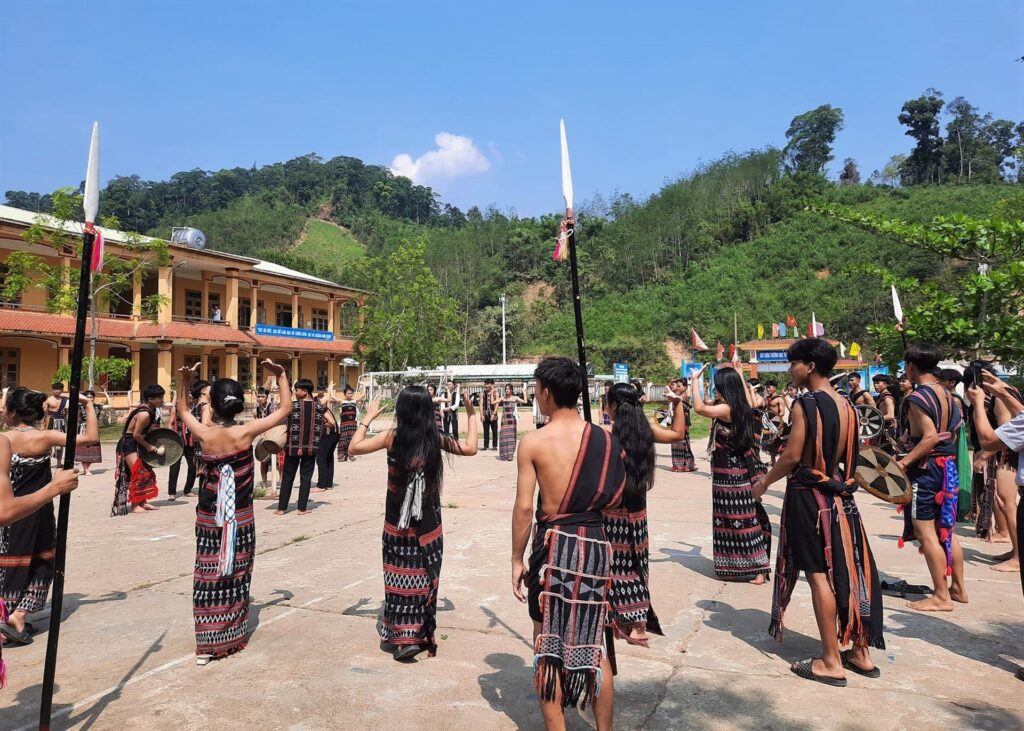
Who Are Vietnam’s Mountain Tribes?
Vietnam is home to 54 officially recognized ethnic groups, many of whom reside in the mountainous northern and central regions. These include:
- H’Mông
- Dao (Yao)
- Tày
- Nùng
- Mường
- Thái
- Khơ Mú
- Lô Lô, and others
Each group has its own language, customs, spiritual beliefs, traditional dress, music, and art forms. Living in remote villages, they have preserved their cultural identities across generations despite rapid modernization.
Why Choose a Vietnam Mountain Tribe Experience?
a. Authentic Cultural Immersion
Unlike urban centers, tribal communities offer a rare chance to step into another world—one where traditions matter, elders are respected, and life flows with the rhythm of nature. Guests can engage in daily village activities like weaving, cooking, farming, or singing traditional songs.
b. Sustainable and Ethical Tourism
Most Vietnam mountain tribe experiences are community-based, meaning your visit helps support local families and preserve cultural heritage. This is tourism with a purpose—benefitting both traveler and host.
c. Unmatched Natural Beauty
Vietnam’s northern highlands boast spectacular landscapes: misty mountains, terraced rice paddies, pine forests, and waterfalls. Trekking through these regions connects you with nature and culture simultaneously.
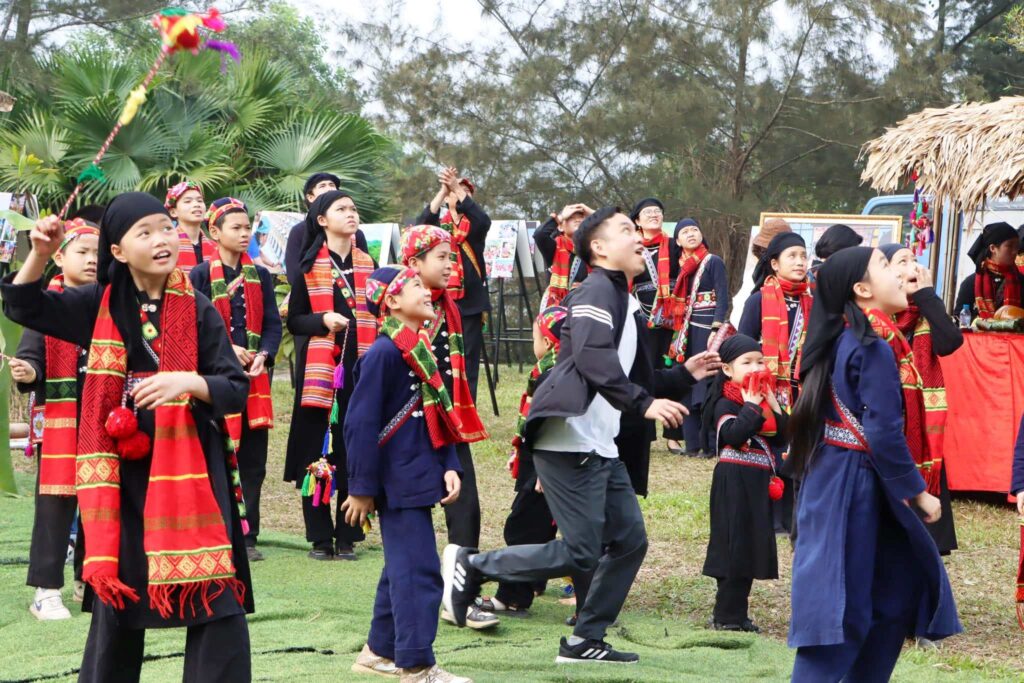
Ba Vì: A Cultural Haven Just Outside Hanoi
For travelers who may not have time to go deep into the northern mountains, Ba Vì National Park, located just 60 km from Hanoi, offers a convenient and rich introduction to mountain tribe life.
a. The Mường: Guardians of the Gong Culture
The Mường people are one of Vietnam’s most ancient ethnic groups. In Ba Vì, their cultural identity is preserved through music, dance, language, and architecture.
When you arrive in a Mường village, you may be welcomed by rows of gong players in traditional costumes. Their deep, echoing rhythms are more than just music—they’re part of rituals, community gatherings, and spiritual beliefs.
“For the Mường, gongs are not instruments—they’re living spirits,” says artisan Bùi Thị Tứ. “Each tone speaks to the gods and our ancestors.”
b. Mường Traditional Life
Visitors can explore:
- Stilt houses made of wood and bamboo
- Handwoven garments rich in cultural symbolism
- Mo Mường rituals (spiritual chants and oral traditions)
- Local cuisine such as bamboo-tube rice and forest vegetables
Ba Vì’s government actively supports cultural preservation, ensuring that even younger generations learn to speak Mường and continue traditions.
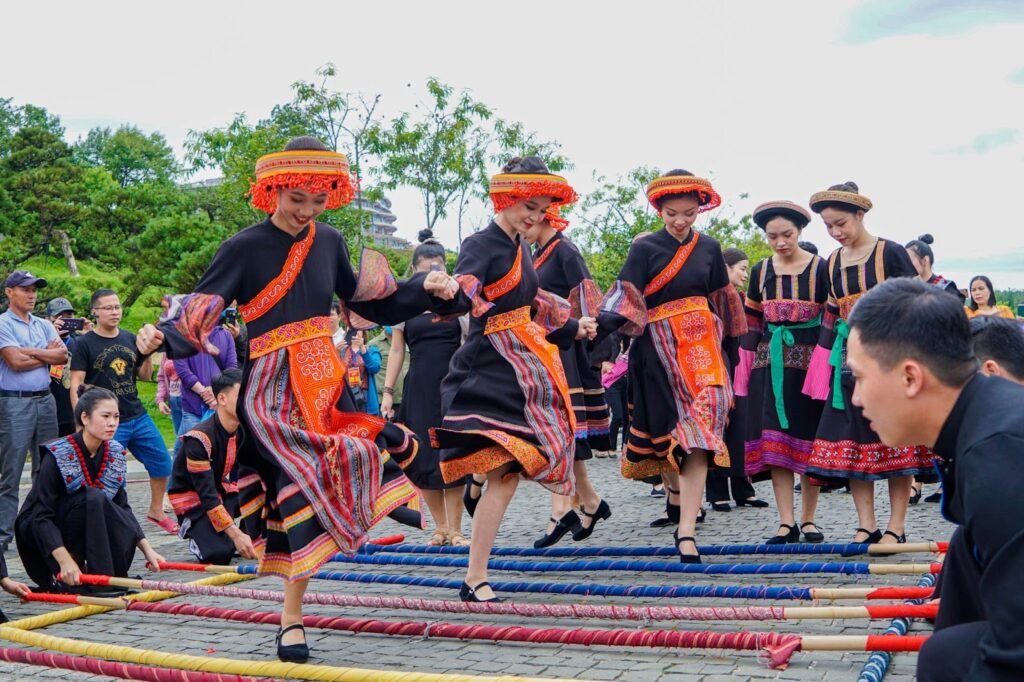
Dao Tribe Healing Traditions in Ba Vì
The Dao people, another prominent ethnic group in Ba Vì, are famous for their deep knowledge of herbal medicine. They have used natural remedies for generations to heal body and mind.
a. Herbal Baths and Wellness
A signature Dao experience is the herbal bath, which uses more than 20 local plants, including:
- Ginger root
- Wild mint
- Lemongrass
- Basil
- Cinnamon bark
You soak in a wooden tub with steaming, fragrant water under the open sky, surrounded by nature. The experience relieves muscle pain, detoxifies the body, and clears mental stress.
“After the bath, I felt lighter, more balanced. It was like meditation for the body,” says Emma, a traveler from Canada.
b. Herbal Medicine and Organic Products
The Dao also produce:
- Herbal teas
- Digestive tonics
- Detox syrups
- Natural balms and oils
Many products are made in cooperatives, empowering local women and supporting ethical trade.
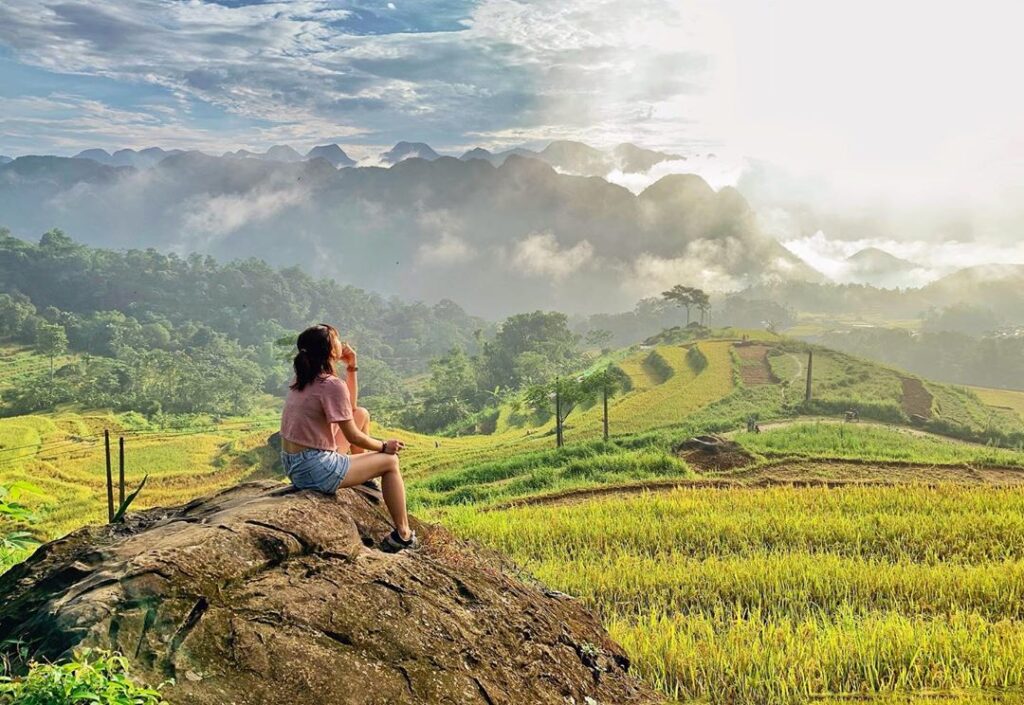
Creative Cultural Experiences: Art, Cuisine, and Farming
A Vietnam mountain tribe experience also involves hands-on creativity.
a. Painting on Ostrich Eggs
In Ba Vì, travelers can try painting on real ostrich eggs, a unique souvenir to take home. This activity encourages mindfulness, imagination, and learning about local wildlife (Ba Vì has over 200 ostrich farms!).
b. Traditional Cooking Classes
Learn to prepare:
- Cơm lam (bamboo-cooked rice)
- Lợn mán (mountain pig)
- Rau rừng xào (sautéed forest greens)
- Sticky rice with herbal leaves
Local hosts guide you step-by-step using ingredients harvested from nearby fields or forests.
Where Else to Go for Mountain Tribe Experiences in Vietnam
a. Sapa and the Northern Highlands
The most famous destination for tribal trekking:
- Meet Black H’Mông and Red Dao
- Trek through rice terraces
- Stay in homestays overlooking valleys
- Join in festivals like Gầu Tào
b. Mai Châu (Hòa Bình)
Home to the White Thái people, this peaceful valley is perfect for:
- Stilt house homestays
- Cycling through rice paddies
- Enjoying Xòe dance performances
- Buying handmade embroidery
c. Ha Giang
One of the most rugged and beautiful regions, Ha Giang is home to Lô Lô, Flower H’Mông, and Pu Péo tribes. It’s ideal for:
- Motorbike adventures
- Stone plateau landscapes
- Colorful tribal markets
d. Bắc Hà Market
Held every Sunday, this highland market is a cultural spectacle where tribes come in full dress to trade:
- Fabrics
- Silver jewelry
- Herbal remedies
- Local livestock
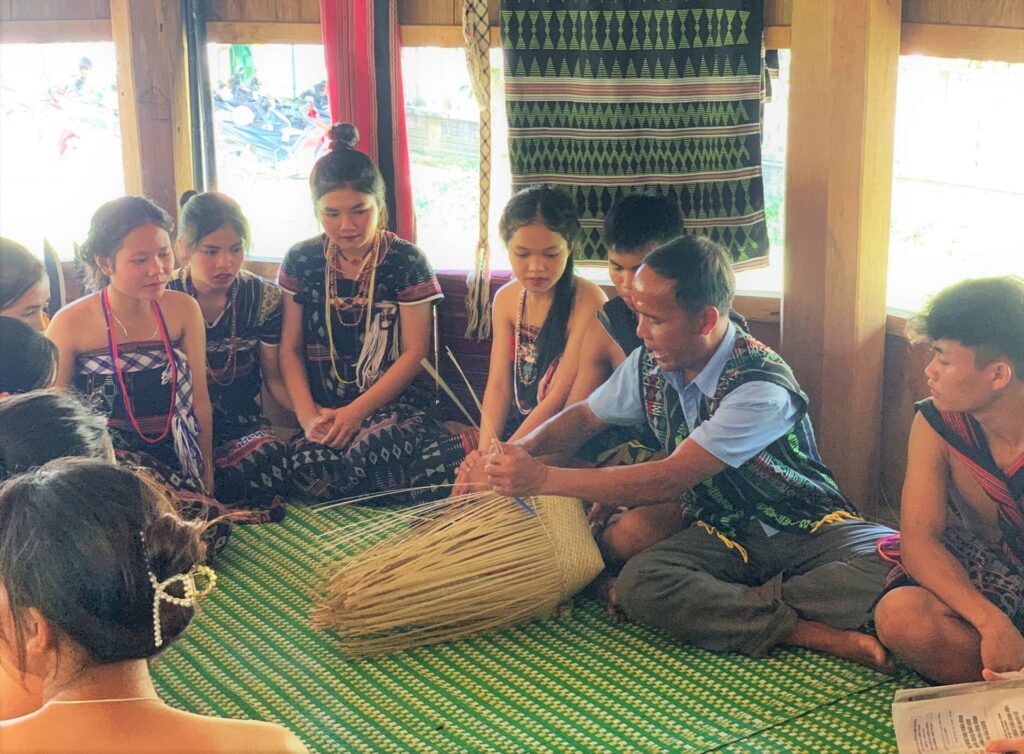
Ethnic Festivals Worth Experiencing
- Gầu Tào Festival (H’Mông): A prayer for health, fertility, and prosperity
- Tết Nhảy (Dao): New Year’s dances, ancestor offerings, and spiritual chants
- Xên Mường Festival (Thái): Honors village spirits and celebrates community life
- Then Ceremonies (Tày and Nùng): Recognized by UNESCO, combining singing, spiritual trance, and đàn tính music
These festivals provide a front-row seat to centuries-old traditions.
Tips for a Meaningful Vietnam Mountain Tribe Experience
- Respect Local Customs: Ask before taking photos, dress modestly, and remove shoes before entering homes.
- Use Local Guides: They speak the tribal language and explain cultural nuances.
- Book Community Homestays: Your money directly supports families and cultural preservation.
- Pack Appropriately: Weather in the mountains can change quickly. Bring warm layers, rain gear, and trekking shoes.
- Be Open-Minded: You might eat with your hands, sleep on a bamboo mat, or wake up to the sound of roosters. It’s all part of the charm!
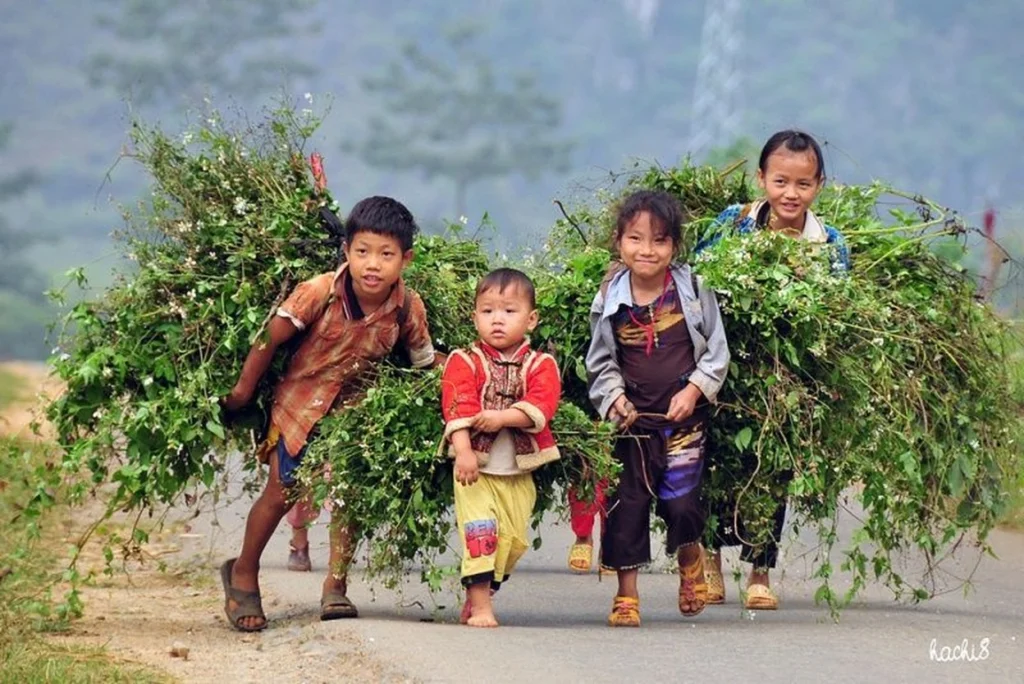
Travel With Meaning, Come Back With Stories
A Vietnam mountain tribe experience is more than a vacation—it’s a journey into the soul of a country. It’s where hospitality means sharing not just food and shelter, but songs, stories, and a way of life that predates modern borders.
Whether you’re seeking healing in Dao herbal baths, dancing to Mường gongs, or learning to cook like a Thái grandmother, the highlands of Vietnam offer something no city can—depth, connection, and authenticity.
Take the road less traveled. Step into a world where tradition lives on. Your Vietnam mountain tribe experience is waiting with VietnamTour.
See more post: Explore Ninh Binh by boat: Vietnam’s hidden waterworld adventure

